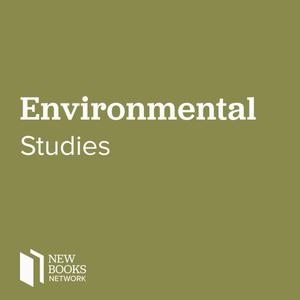
New Books in Environmental Studies
Interviews with Environmental Scientists about their New Books
- 34 minutes 12 secondsPeter Hill, "River Profiles: The People Restoring Our Waterways" (Columbia UP, 2024)
Peter Hill has been working as a resource manager with a specialty in stream restoration for over two decades, first for Washington DC and then as a consultant for Great Lakes Watershed Opportunities. Currently, he is Senior Policy Advisor for Green Infrastructure at the Environmental Policy Innovation Center in Milwaukee, WI.
His many years of experience in managing major, multi-agency stream and river restoration projects which necessarily needed to include building partnerships to support such multi-faceted ecological restoration efforts. Many of these resource management projects have been located in underserved areas.
With River Profiles: The People Restoring Our Waterways (Columbia UP, 2024), Pete reaches out to both the layperson, as well as the practicing professional. His goal is to build a more comprehensive understanding regarding restoration best practices that can be tapped to meet a community’s desire for a healthy and sustainable riparian environment.
But Pete’s perspective and professional practice goes beyond just understanding different restoration approaches. He is also quite cognizant about the need to build community understanding and support for their local rivers and streams, both in rural and urban settings. To this latter point, he does feel strongly that stream and river restoration can be tied directly to a community’s environmental justice efforts.
Michael Simpson has been actively working, researching and teaching in the watershed management and wetlands fields for 40 years. He is a licensed wetlands scientist where he has conducted numerous delineations, wetland assessments, employing a variety of assessment approaches and data collection procedures, as well as designing wetlands for treatment of non-point source run-off, agricultural liquid wastes and municipal generated waste water.
Currently, his primary research for both US EPA and NOAA has focused upon impact to natural systems and built infrastructure in riparian corridors and estuaries, from changes in land-use on the watershed combined with increases in storm intensity and frequency due to projected climate change.
Learn more about your ad choices. Visit megaphone.fm/adchoices
Support our show by becoming a premium member! https://newbooksnetwork.supportingcast.fm/environmental-studies
29 January 2025, 9:00 am - 50 minutes 17 secondsDario Fazzi, "Smoke on the Water: Incineration at Sea and the Birth of a Transatlantic Environmental Movement" (Columbia UP, 2023)
The U.S. government, military, and industry once saw ocean incineration as the safest and most efficient way to dispose of hazardous chemical waste. Beginning in the late 1960s, toxic chemicals such as PCBs and other harmful industrial byproducts were taken out to sea to be destroyed in specially designed ships equipped with high-temperature combustion chambers and smokestacks. But public outcry arose after the environmental and health risks of ocean incineration were exposed, and the practice was banned in the early 1990s.
Smoke on the Water: Incineration at Sea and the Birth of a Transatlantic Environmental Movement (Columbia UP, 2023) traces the rise and fall of ocean incineration, showing how a transnational environmental movement tested the limits of U.S. political and economic power. Dario Fazzi examines the anti-ocean-incineration movement that emerged on both sides of the Atlantic, arguing that it succeeded by merging local advocacy with international mobilization. He emphasizes the role played at the grassroots level by women, migrant workers, and other underrepresented groups who were at greatest risk. Environmental groups, for their part, gathered and shared evidence about the harms of at-sea incineration, building scientific consensus and influencing international debates.
Smoke on the Water tells the compelling story of a campaign against environmental degradation in which people from marginalized communities took on the might of the U.S. military-industrial complex. It offers new insights into the transnational dimensions of environmental regulation, the significance of nonstate actors in international history, and the making of environmental justice movements.
Learn more about your ad choices. Visit megaphone.fm/adchoices
Support our show by becoming a premium member! https://newbooksnetwork.supportingcast.fm/environmental-studies
26 January 2025, 9:00 am - 52 minutes 27 secondsMelanie Dennis Unrau, "The Rough Poets: Reading Oil-Worker Poetry" (McGill-Queen's UP, 2024)
Oil workers are often typecast as rough: embodying the toxic masculinity, racism, consumerist excess, and willful ignorance of the extractive industries and petrostates they work for. But their poetry troubles these assumptions, revealing the fear, confusion, betrayal, and indignation hidden beneath tough personas.
The Rough Poets: Reading Oil-Worker Poetry (McGill-Queen's University Press, 2024) by Dr. Melanie Dennis Unrau presents poetry by workers in the Canadian oil and gas industry, collecting and closely reading texts published between 1938 and 2019: S.C. Ells’s Northland Trails, Peter Christensen’s Rig Talk, Dymphny Dronyk’s Contrary Infatuations, Mathew Henderson’s The Lease, Naden Parkin’s A Relationship with Truth, Lesley Battler’s Endangered Hydrocarbons, and Lindsay Bird’s Boom Time. These writers are uniquely positioned, Melanie Dennis Unrau argues, both as petropoets who write poetry about oil and as theorists of petropoetics with unique knowledge about how to make and unmake worlds that depend on fossil fuels. Their ambivalent, playful, crude, and honest petropoetry shows that oil workers grieve the environmental and social impacts of their work, worry about climate change and the futures of their communities, and desire jobs and ways of life that are good, safe, and just.
How does it feel to be a worker in the oil and gas industry in a climate emergency, facing an energy transition that threatens your way of life? Unrau takes up this question with the respect, care, and imagination necessary to be an environmentalist reader in solidarity with oil workers.
This interview was conducted by Dr. Miranda Melcher whose new book focuses on post-conflict military integration, understanding treaty negotiation and implementation in civil war contexts, with qualitative analysis of the Angolan and Mozambican civil wars.
Learn more about your ad choices. Visit megaphone.fm/adchoices
Support our show by becoming a premium member! https://newbooksnetwork.supportingcast.fm/environmental-studies
19 January 2025, 9:00 am - 59 minutes 5 secondsRobin Visser, "Questioning Borders: Ecoliteratures of China and Taiwan" (Columbia UP, 2023)
Indigenous knowledge of local ecosystems often challenges settler-colonial cosmologies that naturalize resource extraction and the relocation of nomadic, hunting, foraging, or fishing peoples. Questioning Borders: Ecoliteratures of China and Taiwan (Columbia UP, 2023) explores recent ecoliterature by Han and non-Han Indigenous writers of China and Taiwan, analyzing relations among humans, animals, ecosystems, and the cosmos in search of alternative possibilities for creativity and consciousness.
Informed by extensive field research, Robin Visser compares literary works by Bai, Bunun, Kazakh, Mongol, Tao, Tibetan, Uyghur, Wa, Yi, and Han Chinese writers set in Xinjiang, Tibet, Inner Mongolia, Southwest China, and Taiwan, sites of extensive development, migration, and climate change impacts. Visser contrasts the dominant Han Chinese cosmology of center and periphery that informs what she calls “Beijing Westerns” with Indigenous and hybridized ways of relating to the world that challenge borders, binaries, and hierarchies.
By centering Indigenous cosmologies, this book aims to decolonize approaches to ecocriticism, comparative literature, and Chinese and Sinophone studies as well as to inspire new modes of sustainable flourishing in the Anthropocene.
Robin Visser is professor and associate chair of the Department of Asian and Middle Eastern Studies at the University of North Carolina at Chapel Hill. She is the author of Cities Surround the Countryside: Urban Aesthetics in Postsocialist China (2010).
Li-Ping Chen is a teaching fellow in the Department of East Asian Languages and Cultures at the University of Southern California. Her research interests include literary translingualism, diaspora, and nativism in Sinophone, inter-Asian, and transpacific contexts.
Learn more about your ad choices. Visit megaphone.fm/adchoices
Support our show by becoming a premium member! https://newbooksnetwork.supportingcast.fm/environmental-studies
18 January 2025, 9:00 am - 45 minutes 57 secondsJames Michael Buckley, "City of Wood: San Francisco and the Architecture of the Redwood Lumber Industry" (U Texas Press, 2024)
California’s 1849 gold rush triggered creation of the “instant city” of San Francisco as a to base exploit the rich natural resources of the American West. City of Wood: San Francisco and the Architecture of the Redwood Lumber Industry (University of Texas Press, 2024) examines how capitalists and workers logged the state’s vast redwood forests to create the financial capital and construction materials needed to build the regional metropolis of San Francisco. Architectural historian Dr. James Michael Buckley investigates the remote forest and its urban core as two poles of a regional “city.” This city consisted of a far-reaching network of spaces, produced as company owners and workers arrayed men and machines to extract resources and create human commodities from the region’s rich natural environment.
Combining labor, urban, industrial, and social history, City of Wood employs a variety of sources—including contemporary newspaper articles, novels, and photographs—to explore the architectural landscape of lumber, from backwoods logging camps and company towns in the woods to busy lumber docks and the homes of workers and owners in San Francisco. By imagining the redwood lumber industry as a single community spread across multiple sites—a “City of Wood”—Dr. Buckley demonstrates how capitalist resource extraction links different places along the production value chain. The result is a paradigm shift in architectural history that focuses not just on the evolution of individual building design across time, but also on economic connections that link the center and periphery across space.
This interview was conducted by Dr. Miranda Melcher whose new book focuses on post-conflict military integration, understanding treaty negotiation and implementation in civil war contexts, with qualitative analysis of the Angolan and Mozambican civil wars.
Learn more about your ad choices. Visit megaphone.fm/adchoices
Support our show by becoming a premium member! https://newbooksnetwork.supportingcast.fm/environmental-studies
18 January 2025, 9:00 am - 50 minutes 40 secondsCatherine Tatiana Dunlop, "The Mistral: A Windswept History of Modern France" (U Chicago Press, 2024)
Every year, the chilly mistral wind blows through the Rhône valley of southern France, across the Camargue wetlands, and into the Mediterranean Sea. Most forceful when winter turns to spring, the wind knocks over trees, sweeps trains off their tracks, and destroys crops. Yet the mistral turns the sky clear and blue, as it often appears in depictions of Provence. The legendary wind is central to the area’s regional identity and has inspired artists and writers near and far for centuries.
This force of nature is the focus of Dr. Catherine Dunlop’s The Mistral: A Windswept History of Modern France (University of Chicago Press, 2024), a wonderfully written examination of the power of the mistral wind, and in particular, the ways it challenged central tenets of nineteenth-century European society: order, mastery, and predictability. As Dunlop shows, while the modernizing state sought liberation from environmental realities through scientific advances, land modification, and other technological solutions, the wind blew on, literally crushing attempts at control, and becoming increasingly integral to regional feelings of place and community.
This interview was conducted by Dr. Miranda Melcher whose new book focuses on post-conflict military integration, understanding treaty negotiation and implementation in civil war contexts, with qualitative analysis of the Angolan and Mozambican civil wars.
Learn more about your ad choices. Visit megaphone.fm/adchoices
Support our show by becoming a premium member! https://newbooksnetwork.supportingcast.fm/environmental-studies
17 January 2025, 9:00 am - 54 minutes 29 secondsThe Political Ecology of Violence: Peasants and Pastoralists in the Last Ottoman Century
From the nineteenth to the early twentieth centuries, recurrent and extreme climate disruptions became an underlying yet unacknowledged component of escalating conflict between Christian Armenian peasants and Muslim Kurdish pastoralists in Ottoman Kurdistan. By the eve of the First World War, the Ottoman state's shifting responses to these mounting tensions transformed the conflict into organized and state-sponsored violence.
In her book The Political Ecology of Violence: Peasants and Pastoralists in the Last Ottoman Century (University of Cambridge Press, 2024), Dr. Zozan Pehlivan examines the impact of climate on local communities, their responses and resilience strategies, arguing that nineteenth-century ecological change had a transformative and antagonistic impact on economy, state, and society.
Learn more about your ad choices. Visit megaphone.fm/adchoices
Support our show by becoming a premium member! https://newbooksnetwork.supportingcast.fm/environmental-studies
15 January 2025, 9:00 am - 36 minutes 11 secondsDavid Strayer, "Beyond the Sea: The Hidden Life in Lakes, Streams, and Wetlands" (Johns Hopkins UP, 2024)
Beyond the Sea: The Hidden Life in Lakes, Streams, and Wetlands (Johns Hopkins UP, 2024) is an exciting foray into Earth's inland waters, the remarkable species they contain, and the conservation challenges of protecting them.
In Beyond the Sea, he introduces readers to the world's most remarkable and varied inland waters, including massive lakes that fill only once a century, groundwaters miles beneath our feet that host unique microbes, volcanic lakes more corrosive than battery acid, and catastrophic floods that carry ten times more water than the Amazon River. Strayer also shares stories of the myriad fascinating species supported by these crucial ecosystems, featuring mussels that seduce fish, tiny tardigrades that cheat death, animals that photosynthesize, and plants that eat meat.
Because humans have used—and abused—inland waters so intensively Strayer advocates for specific solutions that can restore and sustain these water ecosystems.
Dr. David Strayer is a freshwater ecologist specializing in freshwater mussel ecology. In addition to his most recent publication Beyond the Sea; The Hidden life in Lakes, Streams and Rivers, he has authored a number of books and over 200 research papers. He is also the co-editor of Fundamentals of Ecosystem Science.
Learn more about your ad choices. Visit megaphone.fm/adchoices
Support our show by becoming a premium member! https://newbooksnetwork.supportingcast.fm/environmental-studies
12 January 2025, 9:00 am - 44 minutes 13 secondsWillingness for climate action in South Korea and Finland: A cross-cultural comparison
Climate change is among the most significant challenges facing modern society, and it impacts everyone across the world. How do people in different socio-cultural contexts perceive the climate crisis, and how willing are they to engage in climate-related action? In this episode, we will compare perceptions about climate change and willingness for climate action in South Korea and Finland, two countries that represent very different cultural backgrounds. Dr. Jingoo Kang and Dr. Sakari Tolppanen from the University of Eastern Finland introduce their cross-cultural comparative research on willingness for climate action among students in South Korea and Finland.
This episode is produced with the support of the Otto A. Malm Foundation, and it relates to the Finland-Korea Symposium organised in 2023 to mark the 50th anniversary of diplomatic relations between Finland and the Republic of Korea.
Dr. Jingoo Kang is an Academy Research Fellow at the School of Applied Educational Science and Teacher Education at the University of Eastern Finland. Dr. Sakari Tolppanen is a Senior Researcher at the School of Applied Educational Science and Teacher Education at the University of Eastern Finland.
Ari-Joonas Pitkänen is a Doctoral Researcher at the Centre for East Asian Studies, University of Turku.
The Nordic Asia Podcast is a collaboration sharing expertise on Asia across the Nordic region, brought to you by the following academic partners: Asia Centre, University of Tartu (Estonia), Asian studies, University of Helsinki (Finland), Centre for Asian Studies, Vytautas Magnus University (Lithuania), Centre for East Asian Studies, University of Turku (Finland) and Centre for East and South-East Asian Studies, Lund University (Sweden) and Norwegian Network for Asian Studies.
Learn more about your ad choices. Visit megaphone.fm/adchoices
Support our show by becoming a premium member! https://newbooksnetwork.supportingcast.fm/environmental-studies
12 January 2025, 9:00 am - 22 minutes 9 secondsNegative Life
Steven Swarbrick and Jean-Thomas Tremblay talk about negative life, which names the misalignment of individual and species survival, as a condition of thought and film. In developing this concept, they shed light on the gaps within the rhetoric of entanglement, and push against ethics and politics that insist on the values of human and nonhuman relations. Negative life already inheres in existing social relationships because the world is already broken. Steven and Jean-Thomas critique much of ecocriticism’s romantic attachment to contingencies and solutions that would have us ignore this truth.
Steven Swarbrick is Associate Professor of English at Baruch College, City University of New York. He is the author of two books: The Environmental Unconscious: Ecological Poetics from Spenser to Milton (University of Minnesota Press, 2023) and The Earth Is Evil (forthcoming from the University of Nebraska Press, “Provocations” series, 2025). He is a coauthor, with Jean-Thomas Tremblay, of Negative Life: The Cinema of Extinction (Northwestern University Press, 2024). He has been a guest at High Theory in the past, and his previous episode on ‘The Environmental Unconscious’ can be found here.
Jean-Thomas Tremblay is Associate Professor of Environmental Humanities and Director of the Graduate Program in Social and Political Thought at York University, in Toronto. He is the author of Breathing Aesthetics (Duke University Press, 2022) and, with Steven Swarbrick, a coauthor of Negative Life: The Cinema of Extinction (Northwestern University Press, 2024). Excerpts from a book-in-progress on climate action, liberal sensemaking, and the "world" concept have appeared in Critical Inquiry and are forthcoming in Representations.
Image: © 2025 Saronik Bosu. The silhouette of a forest and that of a cow floating above it, against an orange sky, and a general atmosphere of smoke and haze.
Learn more about your ad choices. Visit megaphone.fm/adchoices
Support our show by becoming a premium member! https://newbooksnetwork.supportingcast.fm/environmental-studies
8 January 2025, 9:00 am - 1 hour 36 minutesBrandon Keim, "Meet the Neighbors: Animal Minds and Life in a More-than-Human World" (Norton, 2024)
What does the science of animal intelligence mean for how we understand and live with the wild creatures around us?
Honeybees deliberate democratically. Rats reflect on the past. Snakes have friends. In recent decades, our understanding of animal cognition has exploded, making it indisputably clear that the cities and landscapes around us are filled with thinking, feeling individuals besides ourselves. But the way we relate to wild animals has yet to catch up. In Meet the Neighbors: Animal Minds and Life in a More-than-Human World (W.W. Norton, 2024), acclaimed science journalist Brandon Keim asks: what would it mean to take the minds of other animals seriously?
In this wide-ranging, wonder-filled exploration of animals’ inner lives, Keim takes us into courtrooms and wildlife hospitals, under backyard decks and into deserts, to meet anew the wild creatures who populate our communities and the philosophers, rogue pest controllers, ecologists, wildlife doctors, and others who are reimagining our relationships to them. If bats trade favors and groups of swans vote to take off by honking, should we then see them as fellow persons—even members of society? When we come to understand the depths of their pleasures and pains, the richness of their family lives and their histories, what do we owe so-called pests and predators, or animals who are sick or injured? Can thinking of nonhumans as our neighbors help chart a course to a kinder, gentler planet? As Keim suggests, the answers to these questions are central to how we understand not only the rest of the living world, but ourselves.
A beguiling invitation to discover an expanded sense of community and kinship beyond our own species, Meet the Neighbors opens our eyes to the world of vibrant intelligence just outside our doors.
Brandon Keim is an independent journalist specializing in animals, nature, and science. His work appears regularly in the New York Times, Atlantic, Nautilus, National Geographic, and elsewhere.
Kyle Johannsen is Sessional Faculty Member in the Department of Philosophy at Trent University. His most recent authored book is Wild Animal Ethics: The Moral and Political Problem of Wild Animal Suffering (Routledge, 2021).
Learn more about your ad choices. Visit megaphone.fm/adchoices
Support our show by becoming a premium member! https://newbooksnetwork.supportingcast.fm/environmental-studies
1 January 2025, 9:00 am - More Episodes? Get the App
Your feedback is valuable to us. Should you encounter any bugs, glitches, lack of functionality or other problems, please email us on [email protected] or join Moon.FM Telegram Group where you can talk directly to the dev team who are happy to answer any queries.
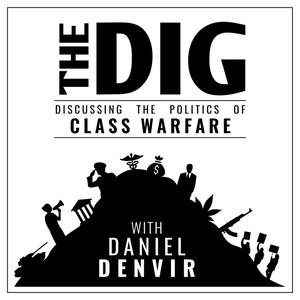 The Dig
The Dig
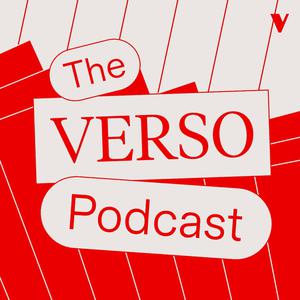 The Verso Podcast
The Verso Podcast
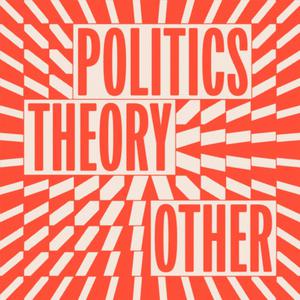 Politics Theory Other
Politics Theory Other
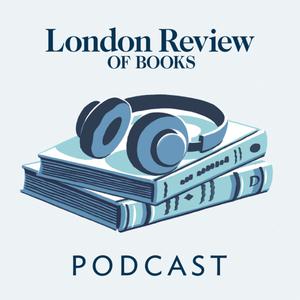 The LRB Podcast
The LRB Podcast
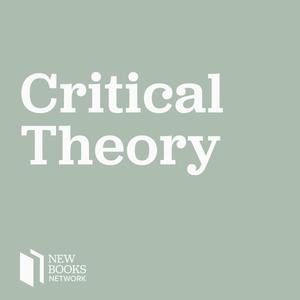 New Books in Critical Theory
New Books in Critical Theory
 Jacobin Radio
Jacobin Radio